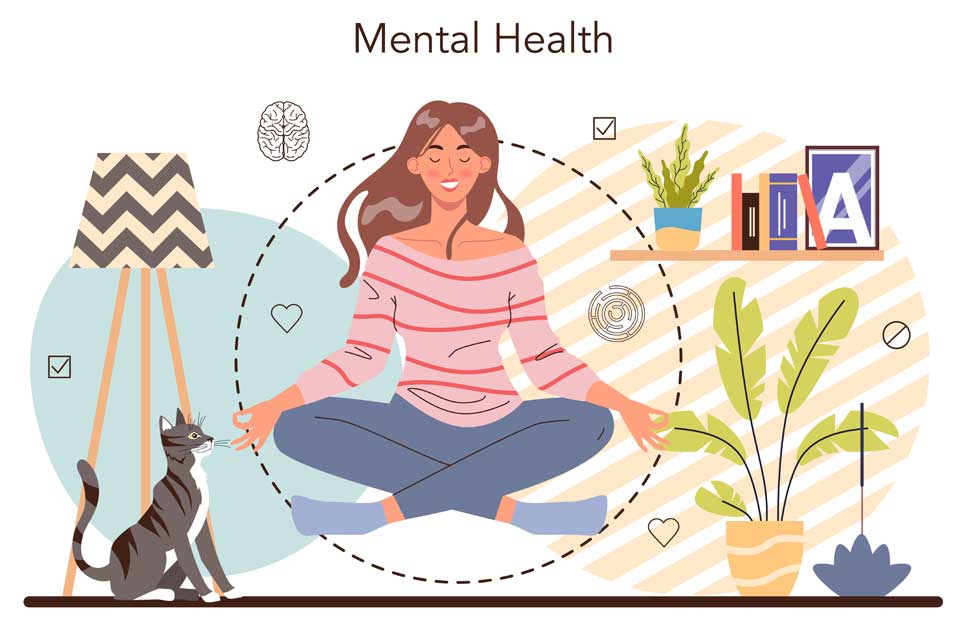A blog post discussing the importance of taking care of one’s mental health and providing tips on how to do so
Introduction to the topic of mental health
Welcome to a space where we dive into the depths of an often overlooked yet crucial aspect of our well-being: mental health. In a world that constantly demands our attention and energy, taking care of our minds is more important than ever. Let’s explore why prioritizing mental health is not just an option but a necessity for living a balanced and fulfilling life.
The prevalence of mental health issues in society
Mental health issues are more common than many people realize. In today’s fast-paced world, stress, anxiety, and depression affect individuals from all walks of life. The pressure to excel in various aspects of life can take a toll on one’s mental well-being.
Social media and the constant comparison it breeds can exacerbate feelings of inadequacy and contribute to mental health challenges. The stigma surrounding mental illness often prevents individuals from seeking help or even acknowledging their struggles openly.
The demanding nature of modern society with its emphasis on productivity and success can lead to burnout and emotional exhaustion. It is crucial to recognize that mental health issues do not discriminate based on age, gender, or social status – they can impact anyone at any time.
By shedding light on the prevalence of these challenges, we take a step towards creating a more compassionate and understanding society that prioritizes mental well-being for all its members.
Why it is important to prioritize mental health
Taking care of your mental health is crucial for overall well-being. It impacts how you think, feel, and act in everyday life. Neglecting your mental health can lead to various issues such as stress, anxiety, and depression.
Prioritizing mental health allows you to better cope with challenges and setbacks that may come your way. It enables you to maintain healthy relationships, make sound decisions, and handle stress effectively. When you prioritize your mental health, you are investing in yourself and your future.
By focusing on mental wellness, you are not only benefiting yourself but also those around you. A healthy mind contributes to a happier and more fulfilling life. Remember that taking care of your mental health is not a luxury but a necessity for a balanced and meaningful existence.
Common misconceptions about mental health
When it comes to mental health, there are several common misconceptions that can hinder understanding and progress. One prevalent misconception is that mental health issues are a sign of weakness or personal failure. In reality, mental health conditions are complex and can affect anyone regardless of their strength or character.
Another myth is that individuals with mental illnesses are unstable or dangerous. This stereotype perpetuates stigma and discrimination against those struggling with their mental well-being. Additionally, some may believe that seeking help for mental health concerns is unnecessary or shameful. However, reaching out for support is a courageous step towards healing and self-care.
It’s important to debunk these misconceptions in order to foster empathy and promote acceptance surrounding mental health challenges. By challenging stereotypes and promoting education, we can create a more compassionate society where everyone feels comfortable seeking the help they need without fear of judgment or misunderstanding.
Tips for maintaining good mental health:
Taking care of your mental health is essential for overall well-being. Here are some tips to help you maintain good mental health:
Self-care practices play a vital role in nurturing your mental well-being. Make time for activities that bring you joy and relaxation, whether it’s reading a book, going for a walk in nature, or practicing mindfulness.
Building a support system is crucial in times of need. Surround yourself with people who uplift and support you emotionally. Don’t hesitate to reach out to friends or family members when you’re feeling overwhelmed.
Seeking professional help is not a sign of weakness but strength. If you’re struggling with your mental health, consider talking to a therapist or counselor who can provide guidance and support tailored to your needs.
Remember, taking proactive steps to prioritize your mental health will benefit not only yourself but also those around you. Stay tuned for more tips on how to improve your well-being!
- Self-care practices
Taking care of your mental health is just as important as taking care of your physical well-being. Self-care practices play a crucial role in maintaining a healthy mind and body.
Engaging in activities that bring you joy and relaxation can significantly impact your mental health positively. Whether it’s practicing mindfulness, going for a walk in nature, or indulging in a hobby you love, finding time for yourself is key.
Prioritizing good sleep habits can also contribute to better mental health. Ensuring you get enough rest each night allows your mind to recharge and function optimally during the day.
Setting boundaries with work, social commitments, and technology is another essential self-care practice. Learning to say no when necessary and creating space for yourself can prevent burnout and reduce feelings of overwhelm.
Remember that self-care looks different for everyone; it’s about finding what works best for you personally to nurture your mental well-being effectively.
- Building a support system
Building a support system is like constructing a safety net around you, ensuring that you have people to lean on when times get tough. It’s about nurturing relationships that uplift and empower you, creating a strong foundation for your mental well-being.
Support systems can consist of friends, family members, colleagues, or even support groups where you feel understood and accepted. These are the people who listen without judgment, offer encouragement, and provide practical help when needed.
It’s important to cultivate these connections by being present for others as well. Building a support system is not just about receiving support but also giving it in return. This reciprocity strengthens bonds and fosters mutual trust and understanding.
Remember that it’s okay to reach out and ask for help when you need it. Vulnerability is not a sign of weakness but rather an indication of strength in acknowledging your own limitations. By surrounding yourself with caring individuals, you create a positive environment conducive to good mental health.
- Seeking professional help if needed
When it comes to mental health, seeking professional help is crucial for many individuals. Therapists and counselors are trained to provide support and guidance in navigating through challenging emotions and situations. They offer a safe space for you to express yourself without judgment.
Professional help can come in various forms, such as therapy sessions, counseling, or psychiatric treatment. These professionals are equipped with the knowledge and tools to assist you in developing coping mechanisms and strategies to improve your mental well-being.
It’s important to remember that asking for help is not a sign of weakness but rather a brave step towards taking control of your mental health. Seeking professional assistance shows strength in acknowledging when you need extra support beyond what self-care practices or personal connections can offer.
If you ever feel overwhelmed by your thoughts or emotions, don’t hesitate to reach out to a mental health professional who can provide the guidance and expertise needed to navigate through difficult times effectively. Remember that you deserve to prioritize your mental well-being just as much as your physical health.
How to recognize signs of poor mental health in oneself and others
Recognizing signs of poor mental health is crucial for taking care of yourself and those around you. It’s essential to pay attention to changes in behavior, mood swings, or withdrawal from social activities. If you notice a persistent feeling of sadness, anxiety, or hopelessness, it could indicate underlying mental health issues. Physical symptoms like headaches, digestive problems, or unexplained aches can also be linked to emotional distress.
Changes in sleeping patterns such as insomnia or oversleeping are red flags that shouldn’t be ignored. Difficulty concentrating, making decisions, or experiencing memory problems may point towards mental health struggles. Irritability, anger outbursts, or heightened sensitivity can also signal the need for support and intervention.
It’s important not only to recognize these signs in yourself but also in others close to you. Being attuned to subtle changes in behavior can make a significant difference in offering help and support when needed.
The impact of neglecting mental health on overall well-being
Neglecting mental health can have far-reaching consequences on our overall well-being. Untreated mental health issues can lead to a decline in physical health, strained relationships, decreased productivity at work or school, and even an increased risk of substance abuse.
By prioritizing our mental health and taking proactive steps to care for it, we can improve not only our emotional well-being but also our physical health and quality of life. Remember, seeking help is a sign of strength, not weakness.
Let’s make sure we prioritize our mental health just as much as we do our physical well-being because they go hand in hand towards leading a fulfilling and balanced life.



